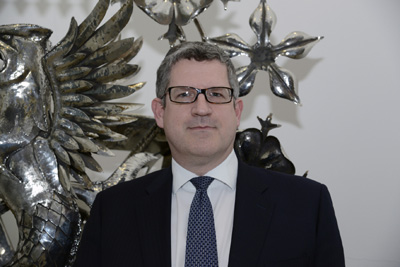
The new Director General of the Security Service (MI5), Andrew Parker gave his first public speech, yesterday Tuesday 8th October 2013, at the following in the tradition of his predecessors, before an uncritical audience at traditional at the Royal United Services Institute (RUSI) in Whitehall.
The Guardian has a useful analysis:MI5 chief's defence of GCHQ surveillance: extracts and analysis by Nick Hopkins and Matthew Taylor
The full text of his speech is worth commenting on, given the mainstream media briefing and spin, which, apart from The Guardian, is wholly uncritical of all of the claims and evasions made in this speech.
Address by the Director General of the Security Service, Andrew Parker, to the Royal United Services Institute (RUSI), Whitehall, 8 October 2013.
Introduction
RUSI is a securocrat thinktank which is literally in Whitehall, opposite next to the Banqueting House, on the same opposite side of the road as to Downing Street, between the Cabinet Office and Horse Guards.
Google Maps Streetview of 61 Whitehall.
[Thanks to the readers who pointed out the error with the geography]
It is now the traditional venue for MI5 Director General's public speeches. N.B. neither the Secret Intelligence Service (MI6) nor GCHQ have bothered with even this tiny level of public transparency.
1. I'd like to start by thanking Professor Michael Clarke and the Royal United Services Institute for offering this forum for my first published speech as Director-General of MI5. RUSI is rightly recognised at home and around the world in the leading rank of independent, authoritative voices on national security matters.
2. I was appointed Director-General of MI5 in April. MI5 is a highly specialised and professional organisation. Its work has been critical to the safety and security of the country and our people for over a century. Leading MI5 is both a tremendous privilege and an enormous responsibility. Those responsibilities are as wide ranging as they are serious. Our work is ever more subject to public debate and scrutiny. I want to use the opportunity of my first public speech tonight to open my contribution to those debates.
"ever more subject to public debate and scrutiny" - really ? where ? Not in Parliament nor in the DA-Notice observant mainstream media.
3. I will focus on three things:
- the MI5 of 2013, and what guides and shapes it;
- the enduring and diversifying threat from Al Qaida and its imitators; and third
- the question of how in a world of accelerating technological change MI5 will continue to be able to get the information it needs to protect the UK.
4. Let me begin with a personal perspective. I joined MI5 30 years ago, fascinated and drawn by the opportunity to work in a professional organisation doing work of real national importance. That might sound starry-eyed, but it has been my genuine experience every day since.
5. Over the years, with many excellent colleagues, I have been greatly privileged to be part of MI5's work in protecting the UK through numerous extraordinary and historic events that have shaped the life of this country.
6. Covert threats to the UK's security can arise from many different quarters. Wherever and whenever they do it is MI5's job to be there, gathering intelligence, investigating and disrupting to protect the United Kingdom.
7. We have seen countless examples of the capacity of individuals, groups and nations to act aggressively for a host of reasons, be it from fear, suspicion or a sense of grievance. We are all too familiar with the way that terrorism, espionage, cyber attack, and weapons of mass destruction are all features of the darker side of our modern world.
8. Of course the type and mix of security threats shifts. Over recent decades new threats have emerged (Al Qaida), old ones have fallen away (Cold War subversion), mutated (Northern Ireland-related terrorism) or branched out in new forms (cyber espionage).
9. MI5 has changed with the times too. So have our close partner Agencies: especially GCHQ, SIS and the police, upon whom our work depends. Together we have a rich and proud history of continually adapting, reshaping, developing new skills and ways of working, and growing innovative capabilities to meet new challenges.
10. The past decade has seen some of the greatest shifts in MI5's post-war history. In recent years we have responded to the rising threat of Islamist terrorism, taken on a new lead role for intelligence work in Northern Ireland, built cyber work, and helped secure the Olympics. As I speak today we are tackling threats on more fronts than ever before.
"built cyber work" - what exactly is the MI5 rather than the GCHQ or Police aspect of this ?
11. But some things don't change. For over a hundred years MI5 has been protecting this country and its people from many kinds of danger: through two World Wars, the Cold War and bloody campaigns of terror. Critical to our success down the decades, and still today, are the enduring qualities that define MI5.
12. I had the pleasure of speaking to several hundred retired members of the Service earlier this year. The audience spanned recent leavers right back to a distinguished colleague who had served during the Second World War. They strongly recognised those defining qualities that remain at the core of MI5 today:
- the energy, commitment and clarity of purpose;
- the deep importance of integrity, objective judgement, and the rule of law;
- operational agility, skill and sheer inventiveness; and
- the way we work together in common endeavour.
13. Security threats are a feature of the modern world, but they do not define it. We are all lucky to be able to live without fear in a free society. It is the task of MI5 and all the vital partner agencies on whom we depend to keep it that way. We deal with threats and dangers all day every day. But for the public at large security concerns are rightly not a dominant part of daily life. Lethal terrorist attacks in the UK remain rare. MI5 and partners have a long track record of detecting and preventing most attempts.
14. But our task is getting harder. The threats are more diverse and diffuse. And we face increasing challenges caused by the speed of technological change. Those are my twin themes tonight.
"Lethal terrorist attacks in the UK remain rare" - not rare, but extremely rare. How much of this is due to MI5 is completely unclear.
Terrorism
15. My predecessor spoke last year about cyber threats. This evening I am majoring on terrorism. Describing the reality of the terrorism threat we face is challenging in public discourse. I've heard too much exaggeration at one end, while at the other there can sometimes be an alarming degree of complacency.
16. A partial picture does the public a disservice. It ultimately tends to corrode confidence in what MI5 and others do, and why. That is one of the main reasons why my predecessors over the past 20 years have made it an occasional habit to speak on the record. None of us joined MI5 to make public speeches. But I too believe strongly that the public is owed an explanation of the threats the country faces and what we are doing about them. Ministers properly take the day-to-day role in doing that, but I think it right that from time to time the public also hear direct from those who work behind the scenes to defend them.
Ministers are meant to be responsible for MI5 and the other intelligence agencies, but they simply do not bother to explain any of their actions, in any worthwhile detail.Instead they pretend that they can "neither confirm nor deny" nor "discuss" anything to do with "national security.
How convenient for them, but this stupidity breeds mistrust in the whole of government and lets conspiracy theories run wild.
17. I'm not focusing on Northern Ireland terrorism this evening in detail, but given its importance and its central part in MI5's work, I can't leave it without saying a few words. We have obviously seen enormous progress in re-building normality in Northern Ireland in the fifteen years since the Good Friday Agreement. But we still have to deal with continuing incidents of violence on both sides.
18. MI5 is necessarily focused on the darkest end. Various terrorist factions remain determined to kill people. We and the Police Service of Northern Ireland detect and disrupt the vast majority of their attempts. But occasionally we are all stung with the tragedy of wanton murder, as we saw most recently with the shooting of David Black last November. Rejecting the political process in Northern Ireland, these ragged remnants of a bygone age are in a cul-de-sac of pointless violence and crime with little community support. We will continue to work with the police to put these thugs and killers in front of the Courts.
Those "ragged remnants of a bygone age" in Northern Ireland still seem to be better armed and have much better access to weapons, explosives and bomb making skills, than any of the recent Islamist extremist plotters.
There should be more focus on Northern Irish terrorism than on purely overseas Islamic extremist plots or fund raising.
19. Turning to international terrorism, let's start with the plain facts: from 11 September 2001 to the end of March this year 330 people were convicted of terrorism-related offences in Britain. At the end of that period 121 were in prison, nearly three-quarters of whom were British. In the first few months of this year there were four major trials related to terrorist plots. These included plans for a 7/7-style attack with rucksack bombs, two plots to kill soldiers, and a failed attempt to attack an EDL march using an array of lethal weapons. There were guilty pleas in each case. 24 terrorists were convicted and sentenced to more than 260 years in jail.
Most of these had no access to weapons, explosives or even money.
Many of those convicted were not actually plotting anything in the UK at all.
The foiling of the potential armed attack by an Islamic extremist gang on the English Defence League extremist march had nothing whatsoever to do with MI5. The idiots got the time of the EDL march wrong and were stopped and arrested by Police, because their car had no insurance, with a car boot full of unsophisticated weapons !
Six admit planning to bomb English Defence League rally
Andrew Parker should have been advised not to use this (non) example in a speech about MI5 and Terrorism.
Far too many of these convictions have been simply for Orwellian Thought Crimes under the notorious Terrorism Act s58 Collection of information - most educated readers of Spy Blog have more knowledge in their heads, than many of those who have been convicted under this section ever downloaded from the internet e.g. the probable honeypot Inspire Magazine
c.f. Spy Blog MI5 / MI6 / GCHQ / CTIRU should positively deny any involvement in "Operation Cupcake" alleged cyber attack on "Inspire" magazine"
N.B. slide 20 in the Washington Post's version of a recent release from NSA whistleblower Edward Snowden (censored in The Guardian version) shows that "Inspire Magazine" was a successful NSA hacking target after 8 months.
EGOTISTICALGIRAFFE (Washington Post version)
20. Today, the threat level for international terrorism in the UK is assessed to be 'substantial': attacks are considered a strong possibility. But what does that really mean?
21. Since 2000, we have seen serious attempts at major acts of terrorism in this country typically once or twice a year. That feels to me, for the moment, unlikely to change.
22. While that tempo seems reasonably even, the ground we have to cover has increased as the threat has become more diversified.
23. Ten years ago, the almost singular focus of the international CT effort was Al Qaida in South Asia. Since that time we have seen violent Islamist groupings in various countries and regions exploiting conflict, revolutions and the opportunity of weakened governance to gain strength and refuge. Some have adopted the Al Qaida brand, becoming franchised affiliates with what at the same time has been a declining Al Qaida core in South Asia.
24. A time-lapse sequence of a world map over the past decade would show outbreaks in Iraq, North & West Africa, Yemen, Somalia, and most recently Syria.
25. Al Qaida and its affiliates in South Asia and the Arabian Peninsula present the most direct and immediate threats to the UK. For the future, there is good reason to be concerned about Syria. A growing proportion of our casework now has some link to Syria, mostly concerning individuals from the UK who have travelled to fight there or who aspire to do so. Al Nusrah and other extremist Sunni groups there aligned with Al Qaida aspire to attack Western countries.
Why devote any expensive resources to people who are planning to travel to fight in Syria or elsewhere ?
Would today's MI5 be snooping on a modern day Eric Blair (better known as George Orwell) who volunteered to fight in the Spanish Civil War ?
Many of those who do so will either be killed or disillusioned, rather than posing any sort of threat (without access to weapons or explosives etc.) if they ever come back to the UK.
26. The ability of Al Qaida to launch the centrally directed large scale attacks of the last decade has been degraded, though not removed. We have seen the threat shift more to increasing numbers of smaller-scale attacks and a growing proportion of groups and individuals taking it upon themselves to commit acts of terrorism. It remains the case that there are several thousand Islamist extremists here who see the British people as a legitimate target.
27. Overall, I do not believe the terrorist threat is worse now than before. But it is more diffuse. More complicated. More unpredictable.
28. We have again seen the reality of terrorism this year. At the In Amenas gas facility in Algeria and then in Nairobi two weeks ago, we saw once more the unconstrained intent of the terrorists in action and the impact on Britons living and working around the world. And on 22 May, Fusilier Lee Rigby was brutally killed in Woolwich -- the forthcoming trial prevents me saying more. And we have seen violent attacks against Muslims and Mosques.
MI5 did nothing at all to prevent the murderer of Fusilier Lee Rigby in Woolwich despite having the alleged murderers under various levels of surveillance for years.
It may even be that the repeated harassment and attempts to recruit the chief suspect and members of his family into becoming MI5 informers actually contributed to this stupid and evil murder.
The Intelligence and Security Committee is meant to have looked into this, but., of course, they have not actually told the public anything, whilst the murder trial proceeds, but don't hold your breath for anything at all critical of Mi5.
Again, Andrew Parker should have been advised not to use this (non) example in a speech about MI5 and Terrorism.
Counter Terrorism
29. I'd like to turn now to counter terrorism. The months preceding 7 July 2005 saw widespread scepticism about the threat... Surely it couldn't happen here? I was Counter Terrorism Director the day Al Qaida murdered 52 people in London. I led the Service's CT response - a story for another day. But the steps we and our partners were then able to take with an injection of new resources led directly a year later to what has been described as the biggest counter terrorism success in modern history. Al Qaida tried to bring down a number of transatlantic airliners using liquid bombs -- the reason why there are restrictions on taking liquids on planes today. Like so many other attempts before and since, we were able to detect that plot and, with partners, stop it.
Therefore Andrew Parker must have been complicit in or and should take personal responsibility for MI5's failure to supply the supposedly independent and all powerful Intelligence and Security Committee with all the relevant information regarding the July 2005 attacks.
The ISC had to sheepishly issue a second report into the July 2005 attacks and both the ISC and MI5 lost a huge amount of public credibility and public trust as a result.
Report into the London Terrorist Attacks on 7 July 2005 (2006)
Review of the Intelligence on the London Terrorist Attacks on 7 July 2005 (2009)
The airliner liquid bomb threat over-reaction has caused millions of pounds of economic damage and has actually put passengers lives at more risk.
The huge pile of baggage which built up at Heathrow airport and elsewhere when the restrictions on liquids were rushed in, which then was flown on passenger planes as well as cargo planes, without the associated passengers on the same plane. This risked Pan Am Flight 103 Lockerbie style bomb attacks and aided drug smuggling instead of making the public any safer.
30. But, as events have tragically shown, we can't stop them all.
31. There can be no doubt that the UK has one of the most developed and effective set of counter terrorist capabilities and arrangements in the world. But I don't say this with any boasting. As I've often said to heads of sister agencies overseas who have made such admiring remarks, what we have in the UK is not the product of some clever consultant on a management away-day with a flipchart and a marker pen. It was not designed and implemented in some giant leap.
32. The reality is of course that the UK has built and then advanced through many stages a set of defences over four decades in response to near-continuous severe terrorist threat. Over that time in Great Britain and Northern Ireland thousands of people have died at the hands of terrorists. We have continually adapted, adjusted and advanced what we do to counter it, applying hard won lessons, sometimes painfully learned. With partners in GCHQ, SIS, and the police, we continually challenge ourselves to move forward and keep improving. Increased investment and the skilful leadership of my predecessors have created a Security Service in the UK that is the envy of the world. Similar advances have been made in the agencies we depend upon.
33. In one sense counter terrorism is an extraordinary proposition. Let me say what I mean. Terrorism, because of its nature and consequences, is the one area of crime where the expectation sometimes seems to be that the stats should be zero.
34. Zero. Imagine applying the same target to murder in general, or major drugs trafficking. That is the stuff of 'pre-crime' in the Tom Cruise movie 'Minority Report'.
35. Life is not the movies. In a free society 'zero' is of course impossible to achieve in the face of persistent and serious threats - though we will keep stretching for it. The utter unacceptability of terrorism is the reason why so much effort is rightly devoted to intelligence work to detect plans and thwart plots before they occur.
36. A strong record of success risks creating an expectation of guaranteed prevention. There can be no such guarantee.
"though we will keep stretching for it." - We do not expect MI5 etc. to completely protect us from every terrorism attack and they should not be allowed to even try to snoop on all (or most) of our (innocent) communications, all of the time.
37. And then there is the difference between knowing of someone and knowing everything about them. Let me say what I mean. With greater resources since 7/7 we have worked very hard to identify as many as possible of the people in the country who are active in some way in support of terrorism.
38. As my predecessors have said at different times, there are several thousand of them, with varying degrees of involvement. My repeating this immediately risks conjuring the perhaps reasonable-seeming assumption that knowing who somebody is means MI5 then somehow knows everything about that person and can continually monitor every aspect of their life. We cannot.
Sounds like a pre-emptive washing of hands regarding the Drummer Lee Rigby murder.
Our impression of that murder is that the two alleged murderers only talked face to face to each other whilst planning an almost random , spur of the moment attack. Unless there had been an armed MI5 or Police surveillance team tracking them, no amount of MI5 communications or other remote surveillance could have prevented this evil murder.
39. The idea that we either can or would want to operate intensive scrutiny of thousands is fanciful. This is not East Germany, or North Korea. And thank goodness it's not. Successive Governments have made careful decisions about both the scale and powers of organisations like MI5, proportionate to the threats, and have gone no further. Britain is a democracy that rightly prizes the freedom of the individual. We do not want all-pervasive, oppressive security apparatus.
That is not how East German or North Korean state surveillance works, though, is it ? Even they did not / can not snoop on everything all of the time.
Surely everyone in MI5 must be familiar with this famous quote from George Orwell's Nineteen Eighty-Four part 1 chapter 1.
Spy Bog George Orwell's 1984 - telescreen and the surveillance society
There was of course no way of knowing whether you were being watched at any given moment. How often, or on what system, the Thought Police plugged in on any individual wire was guesswork. It was even conceivable that they watched everybody all the time. But at any rate they could plug in your wire whenever they wanted to. You had to live -- did live, from habit that became instinct -- in the assumption that every sound you made was overheard, and, except in darkness, every movement scrutinised.
40. Knowing of an individual does not equate to knowing everything about them. Being on our radar does not necessarily mean being under our microscope. The reality of intelligence work in practice is that we only focus the most intense intrusive attention on a small number of cases at any one time.
There is no reason to disbelieve Andrew Parker when he states the obvious regarding properly authorised and sanctioned, narrowly targeted snooping.
Nobody has ever been prosecuted under the Official Secrets Act or the Computer Misuse Act or the Data Protection Act or The Regulation of Investigatory Powers Act etc. for malicious, private snooping , stalking, harassment of their ex-wives or partners (something we absolutely know happens in other organisations like the Police or the Department for Work & Pensions or HM Revenue & Customs etc.) or for financial gain (by selling information to tabloid journalists or foreign intelligence agencies or for insider trading financial speculation.
If MI5 and the other other intelligence agencies want to try to regain the public's trust, which they have lost, they will have to be much more open and ruthless in stamping out, in public, any abuses of the massive snooping infrastructure that they have built in secret.
41. The challenge therefore concerns making choices between multiple and competing demands to give us the best chance of being in the right place at the right time to prevent terrorism. There are of course processes for making these decisions, but I can't emphasise too strongly that it is not and never can be a precise science, and it should not be treated as if it were. It centres on the art of judgement by intelligence professionals, who rarely have more than fragments of a picture to work with.
42. We are not perfect, and there are always things we can learn, do better and sharpen up on. That we have a habit of doing so is one of our enduring strengths. And it's right that independent scrutineers like the Intelligence and Security Committee (ISC) can look at what we have done and help point out areas in which we can improve.
The neither the secretive RIPA Commissioners nor the Intelligence and Security Committee, command any public trust - they are all seen, rightly or wrongly, as Whitehall poodles.
43. I am very pleased that we are a highly accountable Service. It is critically important to the sort of country we all want to live in that organisations like mine do not have free rein, and equally that we are not politically directed. We operate under law. I am in charge of our operations, but am accountable to the Home Secretary. She in turn is accountable to Parliament and the British People, responsibilities that I know she treats with the utmost seriousness.
Like all her recent Labour and Conservative predecessors as Home Secretary, this "utmost seriousness" does not actually involve taking responsibility for MI5 failure and honorably resigning from office, does it ?
44. There is an important double-lock there: Minsters cannot direct MI5 operations, but equally I have to explain and answer for what we do. MI5 initiates operations, but conducting the most intrusive activity requires the signed authority and consent of the Secretary of State in every instance.
Not just a "Secretary of State" but a "senior official" can also sign an Intelligence Services Act warrant or a RIPA Interception warrant, after Charles Clarke's failures to properly notice identical boilerplate text on what should have been individual, different warrants he was supposed to individually scrutinise and sign. This led to the amendments in the Terrorism Act 2006 s31 & s32
45. Our accountability goes much further. MI5 is overseen independently by Parliament through the ISC, inspected by two independent Commissioners (usually senior Judges), held to account on any complaints from the public by a senior and independent Tribunal of judges and lawyers, and audited by the National Audit Office. We give evidence in court.
Neither the Interception of Communications Commissioner, Sir Anthony May nor the Intelligence Services Commissioner, Sir Mark Waller (until December 2013)
are still Judges. They are retired Judges and no longer have any legal powers e.g. Contempt of Court etc. which could be used to fine or imprison truculent Intelligence Agency personnel.
They are very secretive and refuse to engage with the public, a necessary task for which they have no legal mandate and no budget for.
46. Rightly, these arrangements are tough and testing. They have just been strengthened further by the passage of the Justice and Security Act. This has expanded the powers and the resources of the ISC by a significant degree, allowing them for the first time to investigate operational matters of significant national importance.
The ISC is virtually technologically illiterate and has no experience of successfully scrutinising multi-million pound Information Technology projects, which are so common in intelligence agencies these days.
47. I welcome this reform and the enhanced confidence it can give to the public. The fact that much of this oversight necessarily happens out of public hearing leads some commentators to mistake silence for weakness. That is plain wrong. From my experience, I know that all of the bodies I have mentioned and their supporting staff pursue their responsibilities very fully, professionally and conscientiously.
48. We are also coming soon to the first Public Hearing at which the Agency Heads will be televised answering questions from the ISC in Parliament. Whilst it can never replace the value of candid and classified evidence given in closed session about the detail of our work, it will be an important and visible extension of the accountability process and one which is transparent and tangible to the British public.
This televised session was supposed to happen in the first week of July.
When exactly is it now scheduled for ? (no information on ISC or MI5 websites)
There should be a mechanism for the general public to submit Questions to be put to the heads of the UK intelligence Agencies by the Intelligence and Security Committee. However, we fear that this will be a bland, meaningless bit of public relations, not proper transparency or scrutiny.
There are plenty of questions which do not require the revelation of tactical secrets or sources or truly secret techniques.
Challenges
49. I want to mention some of the challenges we face doing our work in the future. I'll do so in the way I talk about this to my staff. I often describe the work of MI5 as a duality: keeping the country safe today, and ensuring we remain able to do so tomorrow. In other words, doing all we can to tackle the threats the country faces today, while also positioning ourselves and developing the capabilities we need to be able to protect the UK against future threats. That second aspect might seem obvious but in a rapidly changing world it is becoming ever more important. It will require constant effort and forward thinking if we are to have the ways and means to hold back tomorrow's threats.
50. Let me explain. Our success in the future depends on how well we are able to respond to two principal themes. I have mentioned the first already: the diversifying threat landscape on all fronts. The challenge for us and for SIS and GCHQ is how to spread our effort effectively across a broader, shifting front. As always we will need to ensure we are at all times looking where the problems for the UK are developing most strongly. That applies across the whole range of fronts, not just terrorism.
"That applies across the whole range of fronts, not just terrorism."
e.g. G20 summits, the United Nations, European Union, French Ministry of Foreign Affairs, SWIFT, Saudi banks, Brasilian petroleum and mineral industries, Belgacom Belgium's main telecommunications company, Tor users etc. , according to the revelations from Edward Snowden.
Edward Snowden
51. The second, perhaps greater, challenge is the accelerating technology race. The internet, `big data', and leaps in technology continue profoundly to change how we all live. There are healthy debates about how society and indeed the economy gain most from the best, while setting aside less welcome effects. Its relevance to our subject tonight is in the opportunities it gives to terrorists, and the challenges posed to us in tracking what they do.
52. What do I mean? The internet is used by terrorists for many purposes: broadcasting their propaganda, radicalising vulnerable individuals, arranging travel, buying items, moving money and so on. But the primary issue is communication.
53. When I joined the Service, communication between remote individuals was by telephone or by letter. Where there were grounds to do so, both could be covertly intercepted under legal warrant. We could reasonably assume that we could acquire the whole content of the target's communication for analysis. At a lower threshold we could acquire their call data: a list of what calls they had made and received, without the content.
54. The internet and related technologies offer a rather different world - better in so many ways, but better too for the terrorists. Through e-mail, IP telephony, in-game communication, social networking, chat rooms, anonymising services, and a myriad of mobile apps the terrorist has tens of thousands of means of communication. Many of those routes are now encrypted. Further advances are made every day.
"tens of thousands of means of communication" - not even full time professional internet experts have access to or will ever use "tens of thousands".
55. How the UK decides to respond to these developments will directly determine the level of security available against the threats we face. Retaining the capability to access such information is intrinsic to MI5's ability to protect the country.
56. Shifts in technology can erode our capabilities. There are choices to be made, including, for example, about how and whether communications data is retained. It is not, however, an option to disregard such shifts with an unspoken assumption that somehow security will anyway be sustained. It will not. We cannot work without tools.
57. Technologies advance all the time. But MI5 will still need the ability to read or listen to terrorists' communications if we are to have any prospect of knowing their intentions and stopping them. The converse to this would be to accept that terrorists should have means of communication that they can be confident are beyond the sight of MI5 or GCHQ acting with proper legal warrant. Does anyone actually believe that? We would all like to live in a world where there were no good reasons for covert investigation of people. But as events continue to prove, that is not the world we are
in.
58. And let me be clear - we only apply intrusive tools and capabilities against terrorists and others threatening national security. The law requires that we only collect and access information that we really need to perform our functions, in this case tackling the threat of terrorism. In some quarters there seems to be a vague notion that we monitor everyone and all their communications, browsing at will through people's private lives for anything that looks interesting. That is, of course, utter nonsense.
Be very clear, just because Mi5 does not officially look through your innocent private (non terrorist, non criminal) communications now, the mere fact of snooping on them and storing them puts them at risk from rogue insiders (especially where personal jealousy or personal financial gain) and from future spies and extremist politicians who may change the current rules.
Until MI5 and their sister agencies can prove that they have really robust internal mechanisms to prevent such rogue or future malicious abuses of the surveillance infrastructure, it is better that they not be trusted with anything except narrowly focused investigations, coupled with an aggressive data destruction policy.
We do not expect 100% "security" and they should not have 100% access to our communications.
59. What we know about the terrorists, and the detail of the capabilities we use against them together represent our margin of advantage. That margin gives us the prospect of being able to detect their plots and stop them. But that margin is under attack. Reporting from GCHQ is vital to the safety of this country and its citizens. GCHQ intelligence has played a vital role in stopping many of the terrorist plots that MI5 and the police have tackled in the past decade. We are facing an international threat and GCHQ provides many of the intelligence leads upon which we rely. It makes a vital contribution to most of our high priority investigations. It causes enormous damage to make public the reach and limits of GCHQ techniques. Such information hands the advantage to the terrorists. It is the gift they need to evade us and strike at will. Unfashionable as it might seem, that is why we must keep secrets secret, and why not doing so causes such harm.
It should be Foreign Secretary William Hague, who is responsible for GCHQ, making such a defence of their snooping activities.
At the very least it should be the Director of GCHQ Sir Iain Lobban, who defends his own organisation in public, not the Director General of the Security Service MI5.
What precise information has been of any value to terrorists whatsoever, in the revelations by Edward Snowden ? How does the revelation of the cover name of say TEMPORA and the millions or billions spent on it, without any real technical details at all, make any difference to a potential terrorist ?
The only operational details revealed have been about spying on supposedly friendly allies and international organisations, who are clearly not terrorists.
Conclusion
60. In closing, let me remind you of something that is too easily forgotten. MI5 is in the end an organisation of members of the public from every walk of life who care very much about the sort of country we live in. That's why they work there. Believe me it's not for the money. Our whole raison d'être is the protection of the freedoms we all enjoy. The fundamental principles of necessity and proportionality run deep in the Service. We bring thoughtful and considered balance to decisions about use of intrusive techniques. Far from being gratuitous harvesters of private information, in practice we focus our work very carefully and tightly against those who intend harm. The law requires it. All our internal controls, systems and authorisation levels are built accordingly and subject to independent inspection and oversight.
61. Threats are diversifying, but not diminishing. The internet, technology and big data are transforming our society. We have a tough job to do in rapidly changing times. We can't stop every plot, much as we try and much as we would like to. There are choices ahead that will determine whether we can sustain what we do, or accept that it will erode.
62. But, standing before you today, I can say that we are well placed to tackle the bulk of the threats we face, because of the support we receive from our colleagues in GCHQ, SIS and the police and, most of all, because of the commitment of the men and women who make up MI5.
Ok, we support what you meant to be trying to do, but we do not trust the under resourced, technologically illiterate, far too secretive and public hating ,supposedly independent scrutiny of your activities
.
Note that there is no mention whatsoever in this speech of what, if anything, MI5 is doing in Counter Intelligence. Have all the foreign intelligence agencies operating in or against the United Kingdom magically stopped ?
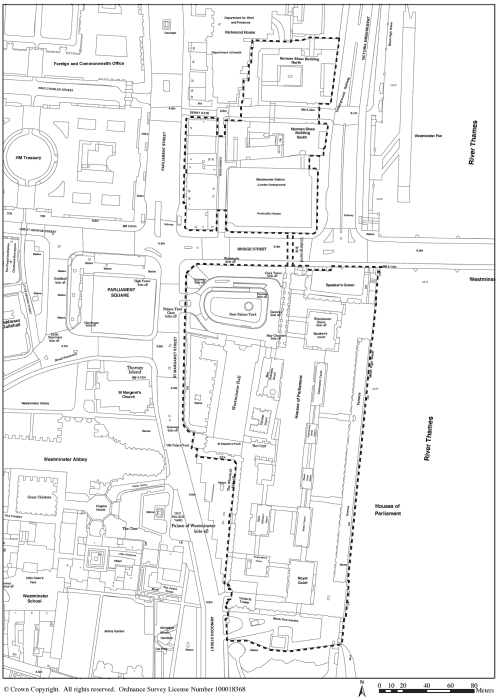





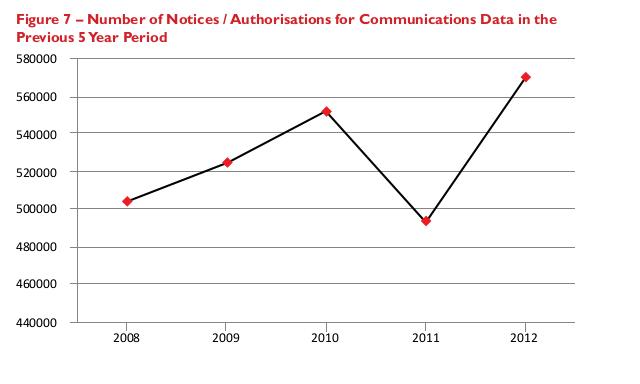

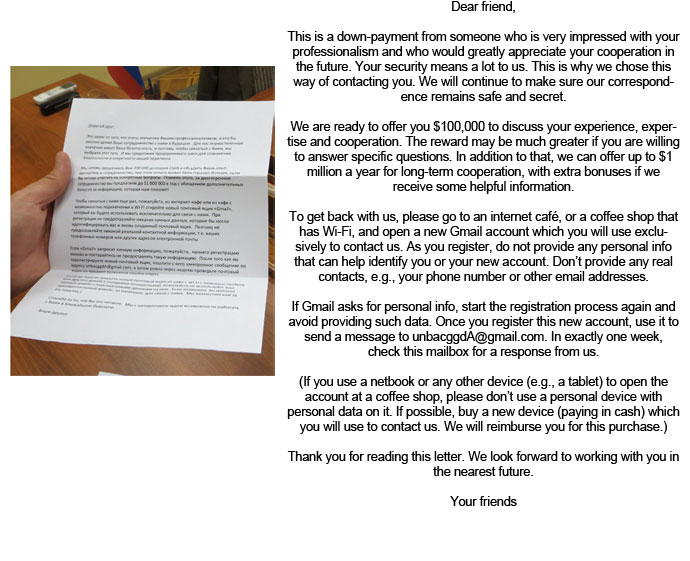
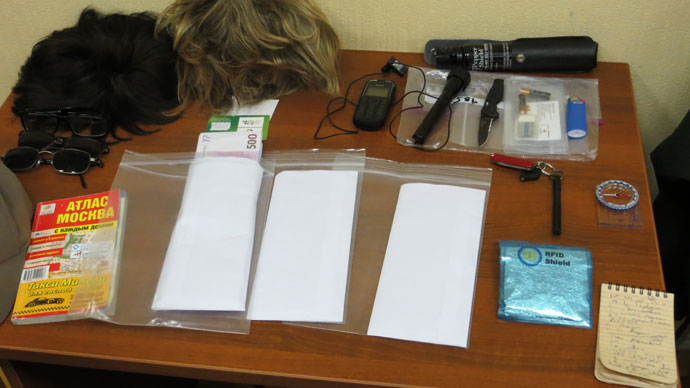
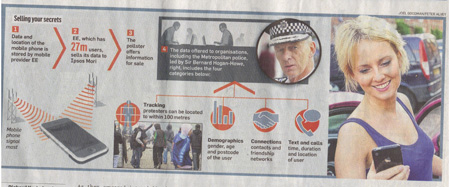


























Recent Comments